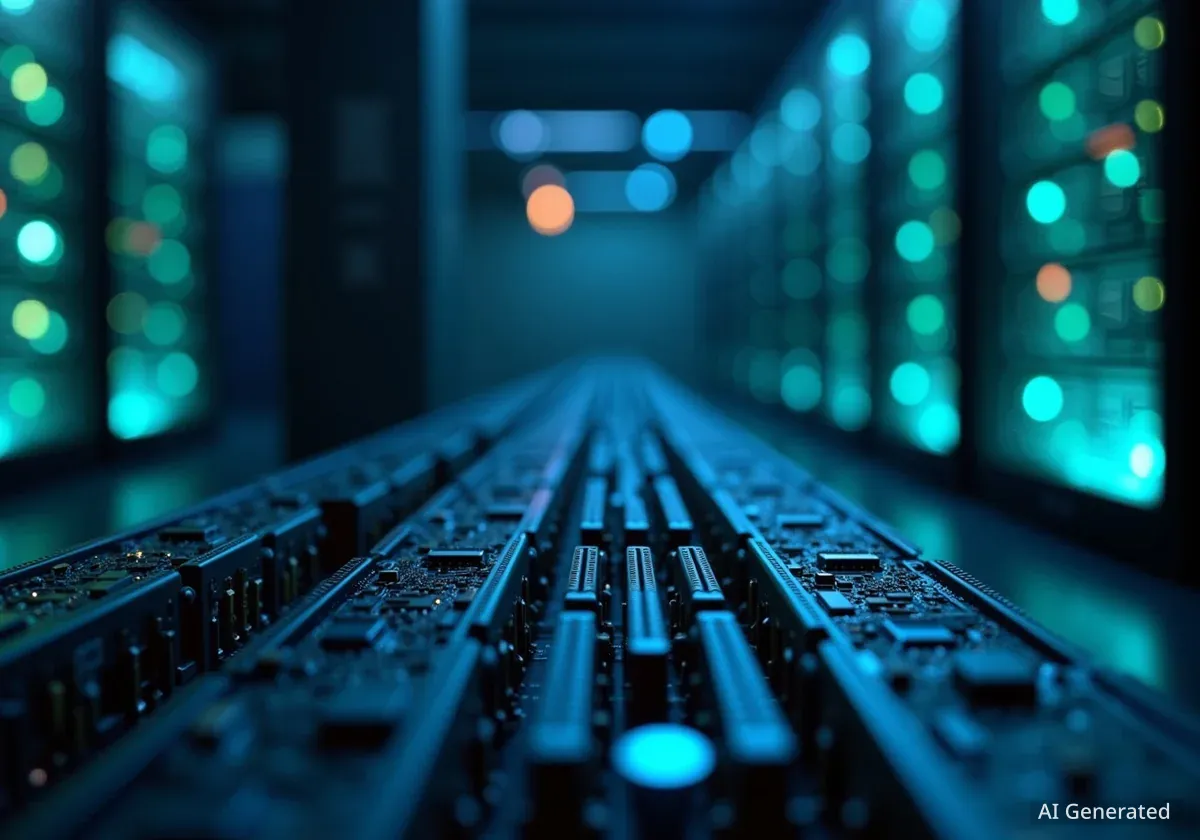Elon Musk has significantly increased his forecast for his artificial intelligence company, xAI, stating there is now a 10% chance its upcoming model, Grok 5, will achieve artificial general intelligence (AGI). The statement marks a notable rise in confidence from his previous estimates and places xAI at the forefront of the high-stakes race to develop human-level AI.
This development comes as Musk navigates several other critical initiatives, including the transition to fully driverless vehicles in Las Vegas and a contentious debate over a proposed multi-billion dollar compensation package at Tesla.
Key Takeaways
- Elon Musk now estimates a 10% probability that xAI's next model, Grok 5, will achieve Artificial General Intelligence (AGI).
- He stated that Grok 5 will be "AGI or something indistinguishable from AGI."
- Separately, Tesla vehicles in the Boring Company's Vegas Loop are set to operate without safety drivers within one to two months.
- Musk is also defending a proposed $1 trillion pay package, facing pushback from some shareholders and advisory firms.
- An insurance company has publicly offered to insure miles driven on Tesla's Full Self-Driving for "almost free," citing safety data.
The Pursuit of General Intelligence
In a recent social media post, Elon Musk revised his public prediction regarding the capabilities of xAI's next-generation large language model. "My estimate of the probability of Grok 5 achieving AGI is now at 10% and rising," he announced. This is a significant statement in an industry where achieving AGI remains a theoretical milestone.
Musk further elaborated, suggesting that the upcoming model's performance would be profound. In a follow-up comment, he noted that "Grok 5 will be AGI or something indistinguishable from AGI." While the model has not yet been released, these comments are setting high expectations within the tech community.
What is Artificial General Intelligence?
Artificial General Intelligence, or AGI, refers to a type of AI that possesses the ability to understand, learn, and apply its intelligence to solve any problem that a human being can. Unlike current AI systems which are specialized for specific tasks (like playing chess or generating text), an AGI would have cognitive abilities comparable to or exceeding those of humans across a wide range of domains.
The development of AGI is considered a transformative event that could accelerate progress in nearly every field, from medicine and manufacturing to scientific research. It is also the precursor to what some experts call Artificial Super Intelligence (ASI), a theoretical form of AI that would surpass the combined intelligence of all humanity.
Autonomy Advances in Las Vegas
While xAI focuses on cognitive intelligence, Musk's other ventures are pushing the boundaries of physical autonomy. A major operational change is planned for the Boring Company's Vegas Loop, an underground transportation system that uses Tesla vehicles to ferry passengers between destinations on the Las Vegas Strip.
Currently, these vehicles operate with human safety drivers behind the wheel, even while using Tesla's Full Self-Driving (FSD) software. However, Musk confirmed that this is about to change. He announced plans to remove safety drivers from the Loop's vehicles within the next month or two.
This move would make the Vegas Loop one of the first large-scale, public-facing services to rely entirely on Tesla's autonomous technology. The system, which currently serves resorts like Westgate and Resorts World, is planned to expand significantly, with a long-term vision of over 100 stations across 68 miles of tunnels.
The transition to driverless operation in Las Vegas mirrors a similar timeline for Tesla's Robotaxi fleet in Austin, Texas, where the company also aims to remove safety monitors from vehicles by the end of the year.
Navigating Corporate Challenges
Musk's ambitious technological goals are unfolding alongside significant corporate and financial matters at Tesla. A central point of discussion is a proposed CEO compensation package that could be worth up to $1 trillion if all performance milestones are met. The plan is set to be voted on at the upcoming Tesla Shareholder Meeting in November.
The package has drawn both strong support and notable criticism. Institutional Shareholder Services (ISS), an influential proxy advisory firm, has recommended that shareholders vote against the proposal, citing its "astronomical" value and potential to limit the board's flexibility on future executive pay.
A former Tesla employee also publicly criticized the plan, arguing it would underperform the S&P 500 and overpay for a CEO. Musk responded directly to the critique, defending his leadership.
"Tesla is worth more than all other automotive companies combined. Which of those CEOs would you like to run Tesla? It won’t be me."
The debate highlights the ongoing tension between rewarding visionary leadership and adhering to conventional corporate governance standards. The Tesla Board has backed the package, stating it includes assurances that Musk's involvement in the political sphere would be managed appropriately.
A New Model for Insurance
As Tesla's autonomous technology matures, it is also creating ripples in adjacent industries like insurance. Traditionally, Teslas have been more expensive to insure due to high-tech components and specialized repair costs. However, the increasing safety data from its FSD system is beginning to change that perception.
Shai Wininger, the co-founder and president of insurance company Lemonade, recently made a public offer to Musk. After announcing a direct API integration with Tesla vehicles to gather more accurate driving data, Wininger proposed a novel idea.
"If @elonmusk is game, we’d be happy to explore insuring Tesla FSD miles for (almost) free," he stated on X. The proposal is based on the premise that vehicles operating on FSD are significantly safer than those driven by humans, a claim supported by Tesla's own safety reports.
This approach could incentivize the use of autonomous driving systems and dramatically lower the cost of ownership for Tesla drivers. Wininger suggested the offer would be available in states where Tesla's own in-house insurance is not yet active. Such a partnership would represent a major industry endorsement of the safety and reliability of Tesla's self-driving technology.





